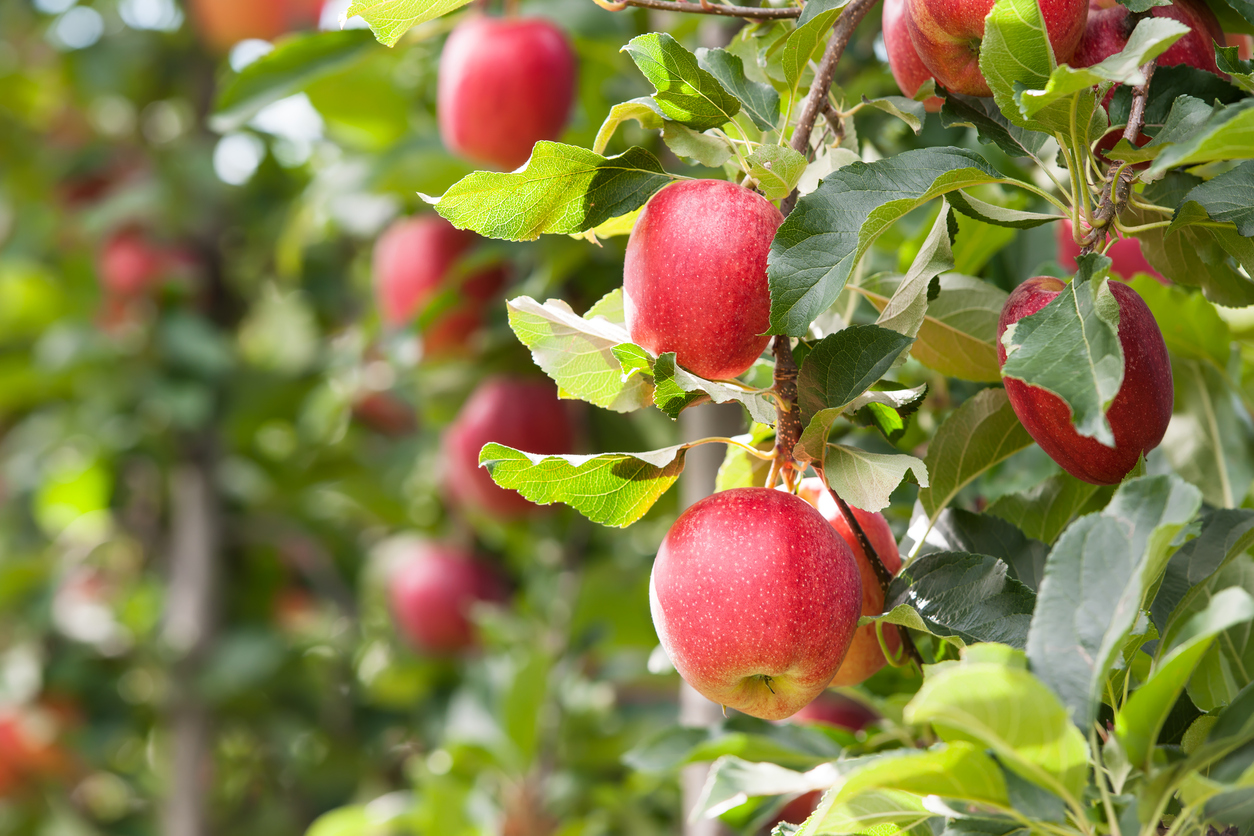
CRISPR Apple Exhibits Less Phloridzin and Normal Growth
December 7, 2022| |
Experts from the Research and Innovation Centre of Edmund Mach Foundation and partners used CRISPR-Cas9 to MdPGT1 in apples, which led to reduced foliar phloridzin without impacting plant growth. The results are published in The Plant Journal.
Phloridzin is the most abundant polyphenolic compound in apples, which results from the action of a critical phloretin-specific UDP-2′-O-glucosyltransferase (MdPGT1). The researchers simultaneously assessed the effects of targeting MdPGT1 by conventional transgenesis and CRISPR-Cas9 genome editing. Transcriptomic and metabolic analyses of MdPGT1 RNA interference knockdown and genome-edited lines were conducted. Knockdown lines showed signs of plant growth and leaf morphology disruption, while the genome-edited lines exhibited normal growth despite reduced foliar phloridzin.
The findings illustrate how CRISPR-Cas9 can be used to understand the contribution of genes involved in phloridzin biosynthesis in apples.
Read the research article in The Plant Journal.
| |
You might also like:
- U.S. FDA Approves Arctic® Fuji Apple
- Apple (Malus x Domestica) GM Events
- Researchers Use CRISPR for Apple and Grapevine Improvement
Biotech Updates is a weekly newsletter of ISAAA, a not-for-profit organization. It is distributed for free to over 22,000 subscribers worldwide to inform them about the key developments in biosciences, especially in biotechnology. Your support will help us in our mission to feed the world with knowledge. You can help by donating as little as $10.
-
See more articles:
-
Gene Editing Supplement (December 7, 2022)
-
Research and Tools
- CRISPR Apple Exhibits Less Phloridzin and Normal Growth
- OsNramp4 Involved in Cadmium Accumulation in Rice Grains
- Agriculture Startup to Grow Rice in the Ocean Using CRISPR
- Simplified Heat Stress Assay Increases Mutagenesis Efficiency in CRISPR
- New CRISPR Tool Allows Precise Inserts of Large DNA Sequences in Targeted Sites
-
Public Acceptance and Engagement
- UK Plant Breeders Express Support for Precision Breeding Techniques
-
Read the latest: - Biotech Updates (November 12, 2025)
- Gene Editing Supplement (October 29, 2025)
- Gene Drive Supplement (February 22, 2023)
-
Subscribe to BU: - Share
- Tweet

